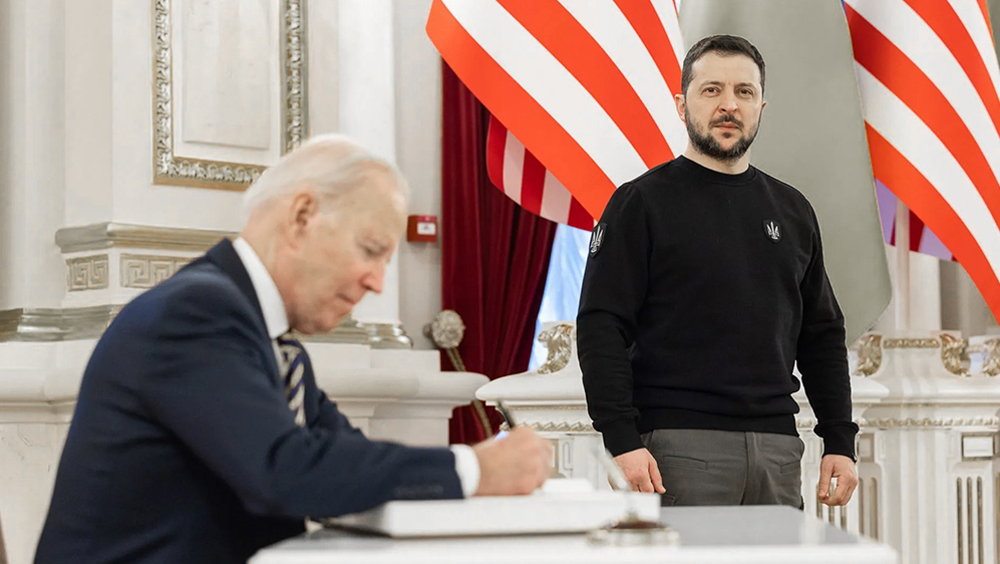CIA sought to mislead IAEA on Iran’s nuclear program: Documents
Newly-declassified CIA documents show that the United States tried to mislead the International Atomic Energy Agency (IAEA) about Iran’s nuclear energy program through the provision of doctored evidence.
The Bloomberg News reported on Friday that the CIA secretly gave the flawed designs for nuclear-weapons components to Iran’s IAEA mission in Austria about 15 years ago.
The plan was revealed in a court case involving CIA operative Jeffrey Sterling who was convicted last month of leaking classified information to a New York Times reporter and the author of a book about the US spy agency’s covert operation aimed at sabotaging Iran’s nuclear energy program.
The documents related to the CIA’s cloak-and-dagger mission were filed as evidence to federal court in Alexandria, Virginia, on January 14 for the trial of Sterling.
“This story suggests a possibility that hostile intelligence agencies could decide to plant a ‘smoking gun’ in Iran for the IAEA to find,” said Peter Jenkins, Britain’s former envoy to the UN's nuclear agency. “That looks like a big problem.”

According to the Bloomberg News, the revelations could prompt the Vienna-based agency to reassess its findings regarding Iran’s alleged nuclear activities.
Iran has accused the IAEA of basing its case against Tehran on forged documents provided by foreign intelligence agencies.
Dan Joyner, a law professor at the University of Alabama, said the CIA covert mission shows the kind of tactics that the United States and its European allies have used against Iran.
“The falsification of nuclear-related documents is a very real part of such states’ efforts to frustrate Iran’s nuclear program,” said Joyner.
“This revelation highlights the dangers of reliance by the IAEA upon evidence concerning Iran provided to it by third party states whose political agendas are antithetical to Iran,” he added.

Sterling, 47, an African American, who disclosed the CIA’s covert mission to journalist James Risen, was charged under the Espionage Act for revealing classified information about the CIA mission.
Sterling’s case revolved around the CIA mission in which a Russian-born scientist, who was reportedly a CIA asset nicknamed Merlin, provided Iran with intentionally flawed nuclear component schematics.
Risen disclosed the secretive operation in his 2006 book State of War, terming it a mismanaged, potentially reckless mission.
Citing an anonymous source in his book, Risen elaborated on the operation, saying the CIA had fed deliberately flawed nuclear blueprints to Iran in hopes of gaining more information and impeding Tehran’s nuclear activities.

Risen wrote that the operation was approved by former US President Bill Clinton in 2000 and later endorsed by his successor George W. Bush.
The United States, Israel, and some of their allies accuse Iran of pursuing military objectives in its nuclear energy program.
The United States and its allies have imposed illegal sanctions on Iran based on the unfounded accusation that Tehran is pursuing non-civilian objectives in its nuclear program.
Iran rejects the allegation, arguing that as a committed signatory to the nuclear Non-Proliferation Treaty (NPT) and a member of the IAEA, it has the right to use nuclear technology for peaceful purposes.
In addition, the IAEA has conducted numerous inspections of Iran's nuclear facilities but has never found any evidence showing that Iran's civilian nuclear program has been diverted to nuclear weapons production.
GJH/GJH
Leader to Lebanese nation, resistance: We’re inseparable, we share your pain, suffering
VIDEO | Eurasia Expo 2025 opens golden door to boost Iran’s economy
Nov. 18: ‘Axis of Resistance’ operations against Israeli occupation
Irish airport used to refuel aircraft carrying lethal arms for Israel
VIDEO | Knesset member forced away from podium, expelled after calling Netanyahu ‘serial killer’
'Arab Nelson Mandela': George Ibrahim Abdallah's 40-year fight for freedom
Iran rejects claims of plot to assassinate ex-Canadian justice minister
Israel’s Gaza genocide, regional aggression underscore ‘urgent need’ for WMD-free zone: Iran










 This makes it easy to access the Press TV website
This makes it easy to access the Press TV website